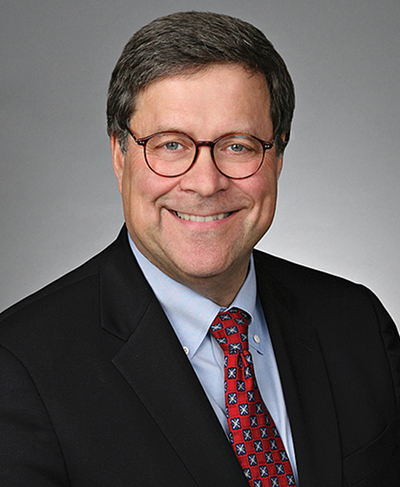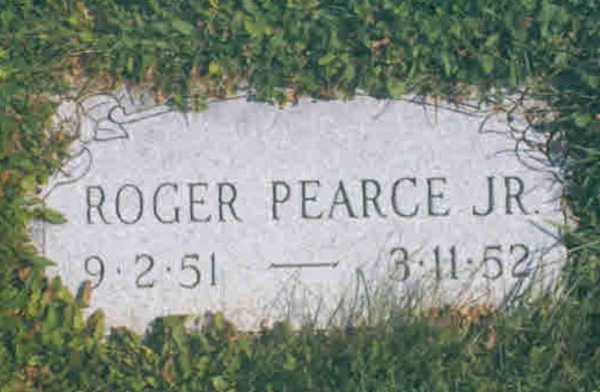AG pick William Barr criticized part of Mueller probe in unsolicited memo to Justice Department

William Barr. Photo courtesy of Kirkland & Ellis.
Updated: William Barr wrote an unsolicited memo to the Department of Justice earlier this year that said special counsel Robert Mueller was “proposing an unprecedented expansion of obstruction laws” in his apparent investigation of President Donald Trump.
Barr, who is Trump’s pick for attorney general, previously was in the position during the administration of President George H.W. Bush. In his June 8 memo, Barr said he was writing as a former official who hoped his views could be useful, the Wall Street Journal reported in its story breaking the news. The Washington Post and the New York Times also have coverage of the memo, released Wednesday evening by the Senate Judiciary Committee.
Barr’s memo could be an issue in his confirmation hearing, although some commentators and Trump’s own lawyers have made a similar argument, according to the stories.
Barr said Mueller was apparently investigating Trump for telling FBI Director James Comey he hoped he could let go of the investigation of Michael Flynn and for later firing Comey. But the president has the authority under the Constitution to remove an official, to use his prosecutorial discretion to give direction on a case, or to use his pardon power, Barr wrote.
Barr asserted that Mueller’s obstruction theory is premised on “a novel and legally insupportable reading of the law.” Obstruction laws don’t “criminalize just any act that can influence a ‘proceeding,’ ” Barr said. Rather, they generally target actions that compromise the integrity of judges and juries or impair the integrity or availability of evidence, he wrote.
“Obviously, the president and any other official can commit obstruction in this classic sense of sabotaging a proceeding’s truth-finding function,” Barr wrote. “Thus, for example, if a president knowingly destroys or alters evidence, suborns perjury or induces a witness to change testimony, or commits any act deliberately impairing the integrity or availability of evidence, then he, like anyone else, commits the crime of obstruction. Indeed, the acts of obstruction alleged against Presidents Nixon and Clinton in their respective impeachments were all such ‘bad acts’ involving the impairment of evidence. … The president, as far as I know, is not being accused of engaging in any wrongful act of evidence impairment. Instead, Mueller is proposing an unprecedented expansion of obstruction laws so as to reach facially lawful actions taken by the president in exercising the discretion vested in him by the Constitution.”
Barr said Mueller’s “fatally misconceived” theory could cause lasting damage to the presidency. Mueller should not be allowed to demand that Trump submit to questioning about alleged obstruction, Barr wrote.
“I know you will agree that, if a DOJ investigation is going to take down a democratically elected president, it is imperative to the health of our system and to our national cohesion that any claim of wrongdoing is solidly based on evidence of a real crime—not a debatable one,” Barr wrote.
Deputy Attorney General Rod Rosenstein, who has been supervising the Mueller investigation, released a statement to the Wall Street Journal on Wednesday.
“I have admired Bill Barr for decades, and I believe that he will be an outstanding attorney general,” Rosenstein said. “Many people offer unsolicited advice … about legal issues they believe are pending before the Department of Justice. At no time did former Attorney General Barr seek or receive from me any nonpublic information regarding any ongoing investigation, including the special counsel investigation. His memo has had no impact on the investigation.”
Rosenstein said at a news conference on Thursday that “We’ve continued to manage the investigation as we have in the past, and it’s being handled appropriately.” According to CNN, Rosenstein continues to manage Mueller’s investigation on a day-to-day basis, although Acting Attorney General Matthew Whitaker has been informed of significant developments in the probe.
CNN and the Washington Post reported Thursday morning that ethics officials at the DOJ reportedly told Whitaker he does not have to recuse himself from overseeing the Mueller investigation. Both stories were based on an anonymous source.
But the Washington Post reported Thursday afternoon that, contrary to the prior report, a senior Justice Department ethics official had recommended that Whitaker recuse himself to avoid the appearance of a conflict of interest, although it was a close call.
Four Whitaker advisers disagreed, and Whitaker has decided not to recuse himself, the Post said. The new Post report was based on anonymous sources.
Whitaker is a former CNN legal analyst who previously criticized the Mueller investigation.
Whitaker has said he could envision a scenario in which a successor to Attorney General Jeff Sessions reduces Mueller’s budget to such a degree that the investigation nearly grinds to a halt. Whitaker also wrote a column in November that said Mueller would be going too far if he investigated Trump’s finances.
Updated at 3:00 to report that Whitaker was reportedly told that he should recuse himself.



